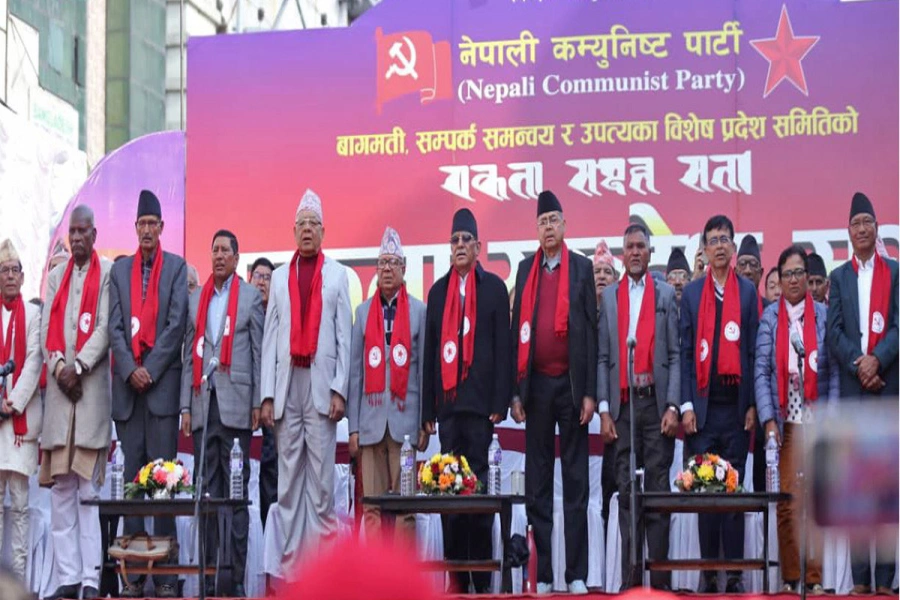Young communists and socialists across the world can gain a lot of knowledge and experience from studying and analyzing Xi Jinping Thought.
The fall of the Berlin Wall in 1989 and the subsequent dissolution of the Soviet Union came as a knockout blow both to the socialist governments of the Eastern Bloc and the various forms of post-colonial governments around the world that had aspired to build a system different from that of the western capitalist countries.
The fall of the Wall symbolized a political victory of the Western countries over the Soviet Union and its satellite states, and a liberal, capitalist system based on some sort of electoral democracy prevailed. Many on the political right, and some on the left, called the victory (or loss depending on the side they chose) final and thinkers like Francis Fukuyama even proclaimed that it was the “End of History” and all of humanity hereafter would live in liberal democracies. Though there were small glitches like the Taliban crisis, political revolutions in Latin American countries known as the “Pink-tide”, and the Great Recession of 2008, the philosophy held out quite true, until now.
With the COVID-19 pandemic, the idea of Western democracy’s superiority over the so-called Asian despotism has turned on its head. The coronavirus crisis has exposed the damage that the Western democracies suffered from years of neoliberalism. The crisis has shown how ill equipped and understaffed their healthcare system is to tackle a protracted pandemic. The shambolic handling of the present crisis by the capitalist powers has demonstrated the brittle and vulnerable nature of their economy. The recent protests against police brutality against minorities and systematic racism in the US and many other Western countries have added fuel to the fire and have showcased the level of distrust people have in their governments. All this has also shown how weak current Western liberal governments are when faced with a do-or-die situation. In stark contrast, socialist countries like China, Cuba, and Vietnam have not only controlled the virus within their borders, but have also sent doctors and medical equipment to other countries fighting the pandemic.
What is Xi Jinping Thought?

China has been a standout country when it comes to dealing with the pandemic. Despite being the epicenter of the pandemic and a country of nearly 1.4 billion people, it has been successful to minimize both human and financial damages within its borders and extend help to countries with weaker health systems. The Chinese Communist Party's decisive leadership has been pivotal in the country’s effective handling of the pandemic. At a time when countries with liberal governments have failed to save lives and livelihoods, Chinese government's response has been rapid and decisive. Their socialized health care system was well prepared to care for everyone, while those of the Western capitalist countries were sluggish and their response was halfhearted. All the applauds that China gained for the effective handing of this pandemic ultimately comes down to the country’s ruling ideology and its political leadership with President Xi Jinping at the centre.
Apart from gaining Chinese socialist system credentials and uncovering the fault-lines within the Western liberal democracies, the present crisis has also provided much needed time and motive for the communist parties around the world to deliberate and forge plans to move ahead in a post-coronavirus world. With neoliberalism facing its greatest crisis since the 2008 recession, the communist parties, if armed with a proper and timely ideology, can really drive the final nail in the coffin of neoliberal capitalism. And this is where Xi Jinping Thought can come in handy.
Xi Jinping Thought
“Xi Jinping Thoughts on Socialism with Chinese characteristics in New Era" propounded by Chinese President and General Secretary of Chinese Communist Party Xi Jinping is the latest and perhaps the most developed set of ideas in the long history of theory and practice of Marxism-Leninism. It includes concepts like poverty alleviation, green and inclusive development, transparency and fiscal discipline, and an aspiration for a shared future for all mankind—a fact that was well demonstrated by China's extensive help to developing countries during this crisis. Another example of Xi Jinping Thought’s humanist universalism is its brainchild—the Belt and Road Initiative (BRI)—which has aimed at alleviating poverty in developing countries via job creation and infrastructure development.
Nepal Communist Party (NCP) and communist parties across the globe can learn a lot from Xi Jinping Thought and forge their ideology around it. China is perhaps one of the few success stories of Marxism, as it has lifted as many as 850 million people out of poverty since the formation of the People’s Republic in 1949. Xi Jingping Thought, in this regard, is the culmination of the process of building a “moderately prosperous society” via a vibrant socialist market economy as practiced by China. At a time when the Western economies are getting more inward and conservative, Xi Jinping Thought looks to the future, towards a prosperous world achieved through a pragmatic and “Scientific Outlook on Development”. Xi Jinping Thought also iterates the need for self-evaluation and criticism, with Xi Jinping himself deeming environmental degradation and equalities in income and development as the major drawbacks of the Chinese system.
Young communists and socialists across the world can gain a lot of knowledge and experience from studying and analyzing Xi Jinping Thought, especially in regards to finding answers to the present crises and the ways to resolve them. It is beyond the scope of this article to list all the salient features of Xi Jinping Thought. However, reading “Governance of China” Volume I and II (books based on Xi Jinping’s speeches and writings) would be a good starting point to know more about it.
Even before the fall of Berlin Wall, the communists around the world were made to choose sides. The 1960s saw the previously unified communist movement divide into Chinese and Soviet quarters. Though the faction divided the communists, the rise of Maoism, especially in the countries reeling from years of colonialism, gave third world communists a new mainly peasantry based ideology and banner to continue the struggle. With China's liberalization in 1980s and the tragic fall of Soviet Union, the communists of the world were left with a new void, an existential crisis that saw many of the followers digress to drastic measures, even falling prey to far-right ideologies. The lefts in the West moved away from class-based politics towards a more identity-based politics sometimes even supporting centrist leaders like Tony Blair and Bill Clinton. The communists in the east and other third world countries were left on their own to forge their own indigenous ideologies. Some went right, some far-left, but almost all of them gained only limited success.
Nepal and communism
In Nepal, the 1990s saw a proliferation of a plethora of communist ideologies—from Madan Bhadari's People's Multiparty Democracy to CP Mainali's New Democracy to Prachanda's Prachandapath. All came and went in the last twenty odd years with mild to moderate success. But as we enter the third decade of the 21st century with its changed socioeconomic and geopolitical conditions, Nepali communist movement needs a new updated ideology, a blue print for action that fits the changed context, for achieving its aspired goal of prosperity and equality.
Xi Jinping Thought is an updated and pragmatic solution to the world communist movement and can provide the Nepal Communist Party (NCP) with an ideology that can bring all its leaders and cadres together, especially at a time when the erstwhile UML and Maoists are finding it difficult to find a common ground.
There will still remain challenges such as adjusting Xi Jinping Thought to suit Nepal’s multiparty political system and modifying it to serve our socioeconomic context, but with universal values like discipline, sustainable development, and poverty eradication and an emphasis towards a more people-oriented approach, Nepal’s communist movement can make great strides if NCP can adhere to this set of ideas and translate it into actions.







































